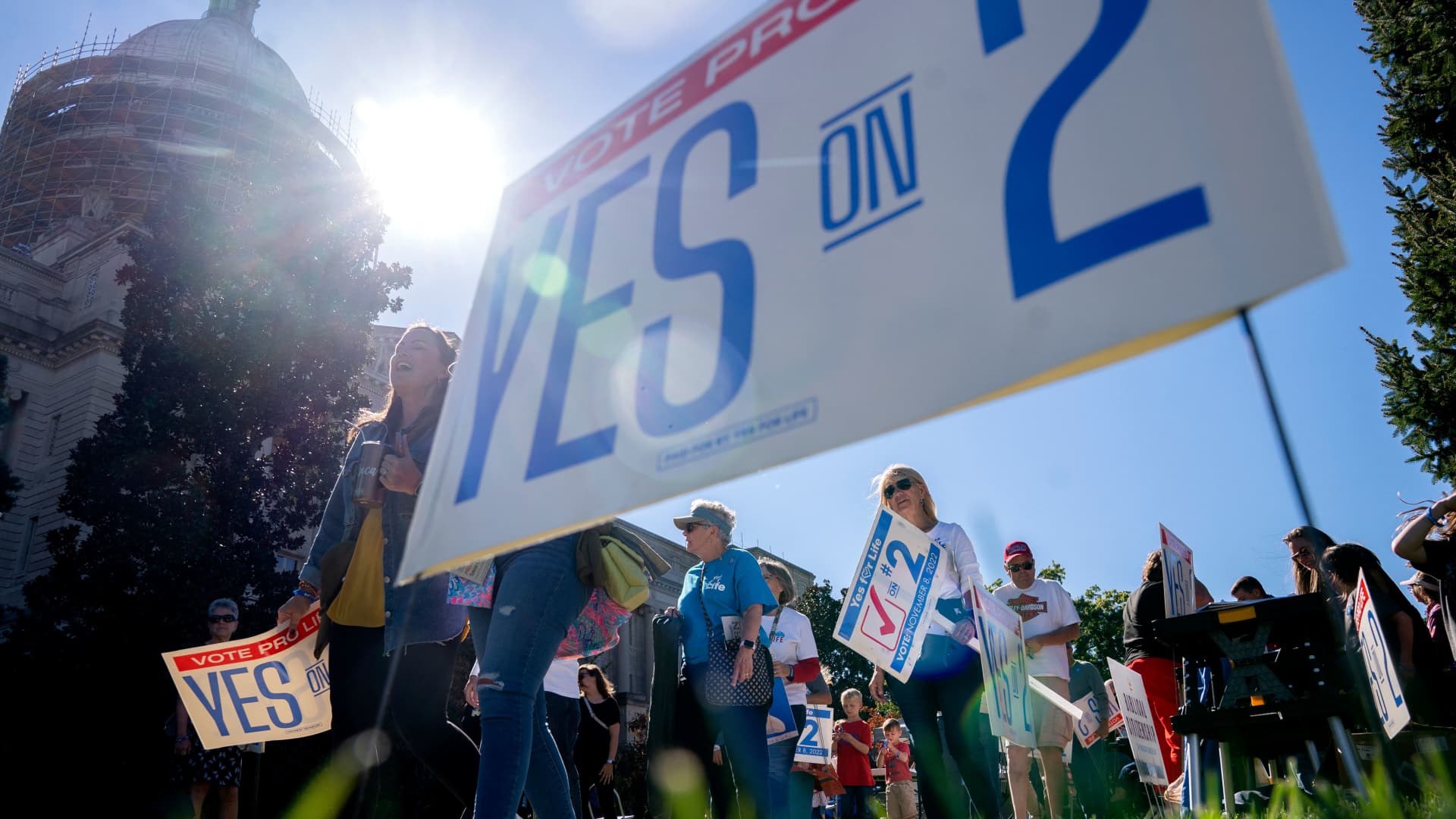Several Kentucky supreme court justices on Tuesday sounded skeptical of the state’s abortion ban, one of the most restrictive in the U.S., during oral arguments in a case that will decide whether women have any access to the procedure in the foreseeable future.
EMW’s Women’s Surgical Center, an abortion clinic based in Louisville, has called on Kentucky’s high court to temporarily block a ban that does not make any exceptions for rape or incest. It does make an exception for when the mother’s life is in danger, though that determination is made by a physician.
The hearing before Kentucky’s high court comes after voters rejected an amendment during the midterm elections that said there is no right to an abortion under the state constitution.
The office of Kentucky’s Republican attorney general on Tuesday argued that the state constitution is neutral on abortion and regulating the procedure is a decision for the legislature. Matthew Kuhn, the state solicitor general, argued there is no historical evidence that the state constitution, adopted in 1891, includes a right to the procedure.
“When it comes to abortion, our constitution here in Kentucky is simply silent,” Kuhn argued. “And there is not a shred of historical evidence, none from this court’s case law and none from our constitutional debates, that suggests our constitution implicitly protects abortion,” Kuhn said.
Deputy Chief Justice Lisabeth Hughes countered that there were no women at the constitutional convention in 1890 and women at the time did not have the right to vote or even own property except in limited circumstances.
“I have some questions about the necessity of grounding our decision in 2022 on what occurred in 1890,” said Hughes, who described voters’ rejection of the anti-abortion constitutional amendment last week as the “purest form of democracy.”
Justice Michelle Keller, who once practiced as a registered nurse, said the state constitution protects the right to self-determination. Keller said the ban’s limited exceptions for when the patient’s life is in danger does not give the mother a role in making even that decision.
Instead, the physician on call makes that determination about whether an abortion is medically necessary and in many cases they do not know what is legal under the ban, Keller said. Doctors are wasting precious time consulting with hospital risk managers and lawyers to make sure they are performing an abortion covered by the ban’s exception, she said. Performing an abortion is a felony punishable by up to five years in prison in Kentucky.
“If there’s a man bleeding out in the ER, he has all the self-determination in the world, and most women do too, unless they’re in a state of pregnancy, and then suddenly there is no self-determination. And then the physician is trying to get ahold of the attorney general,” Keller said.
Justice Laurance VanMeter appeared to question the ban’s lack of exceptions for rape and incest. While some people view abortion as an acceptable form of birth control, he said, state courts have to deal with horrific crimes involving minors.
Kuhn, representing the state attorney general, said the legislature has not met since the ban went into effect and may include such exceptions in the future. But Chief Justice John Minton pointed out that the legislature did not pass an amendment earlier this year that would have provided those exceptions.
Kuhn said the court could issue an injunction that would allow abortion in cases of rape and incest but keep the rest of the ban in place.
Heather Gatnarek, an ACLU attorney representing the plaintiffs, said Kentucky’s abortion ban causes irreparable injury to the patients the state’s two abortion clinics serve by forcing them to remain pregnant against their will, subjecting them to physical and mental health risks.
It’s unclear how Kentucky’s seven-member supreme court will ultimately rule. If they do block the near-total ban while litigation continues in a lower court, a 15-week abortion ban that’s also on the books would remain in effect.
